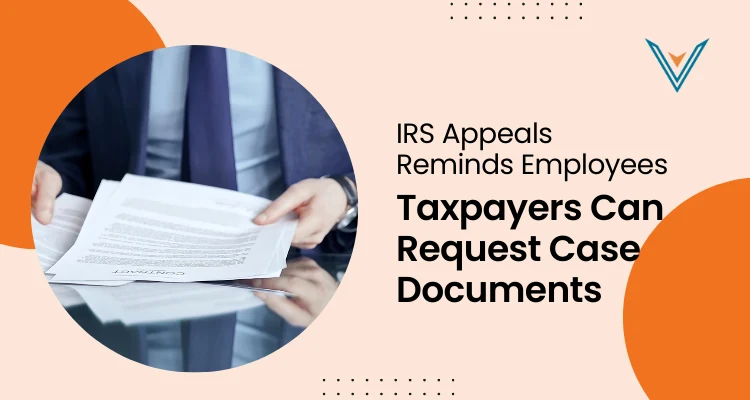The IRS Independent Office of Appeals recently issued internal guidance reminding their employees about an existing policy. Taxpayers have always had the right to informally request their Appeals Case Memorandums (ACMs), but many Appeals employees weren’t following this rule.
This clarification helps ensure taxpayers can actually access documents they’ve been entitled to for years.
Understanding Appeals Case Memorandums (ACMs)
What is an ACM? An Appeals Case Memorandum is a detailed written analysis that includes:
- The facts of your tax case
- Legal conclusions reached by the Appeals officer
- The reasoning behind their proposed resolution
- Management review before any settlement becomes final
Why are ACMs important? These documents help you understand exactly how Appeals evaluated your case. The IRS examination division routinely receives copies to help with future enforcement actions.
The Problem That Existed
Even though taxpayers have always had the right to request ACMs, many faced unnecessary obstacles:
Common Issues:
- Appeals employees often refused to share ACMs with taxpayers
- They incorrectly cited an “alleged policy” against releasing these documents
- Taxpayers were left without clear understanding of their appeal decisions
- Only the IRS compliance team received copies, not the taxpayers themselves
The Real Policy: The Internal Revenue Manual has made clear for years that taxpayers may informally request ACMs. These documents are not automatically exempt from disclosure.
What the National Taxpayer Advocate Says
Erin Collins, the National Taxpayer Advocate, calls this “a meaningful step toward transparency.” She has raised this issue multiple times in reports to Congress and in her blog.
Collins believes withholding ACMs from taxpayers “undermines both the independence and transparency of Appeals.”
She notes that when taxpayers can’t access these documents, they may not understand why their appeal was decided a certain way or what information was shared with the IRS compliance team.
How This Clarification Helps You
Your Rights:
- You can informally request your ACM without filing a formal Freedom of Information Act request
- Appeals employees should no longer cite non-existent policies to refuse your request
- You’ll get better insight into how your case was evaluated
- The process should be more straightforward
What This Means: This isn’t a new right – it’s clarification that Appeals employees must follow existing rules they should have been following all along.
What Tax Professionals Are Saying
Tax controversy attorney Melissa Wiley from Kostelanetz LLP welcomes this development. She notes that many practitioners had stopped requesting ACMs because:
- Requests took many months to process
- Documents were heavily redacted when provided
- The process often wasn’t worth the effort
Impact on Appeals Independence: The IRS’s refusal to provide ACMs was one issue that caused taxpayers to view Appeals as less independent. Appeals is supposed to take a fresh look at cases without favoring either side.
Yet Appeals’ reasoning was only shared with the examination division, not with taxpayers – creating an appearance of bias.
Important Limitations
What may not be shared:
- IRS litigation strategies and other sensitive information
- Truly privileged content that should remain confidential
What should be shared:
- Appeals’ independent analysis of case strengths and weaknesses
- The reasoning behind their decision
- Legal conclusions and factual findings
What Still Needs Improvement
This guidance doesn’t go as far as the National Taxpayer Advocate’s recommendations. Collins continues pushing for:
- Automatic sharing of ACMs in every case (not just upon request)
- Tracking fulfillment of ACM requests with internal metrics
- Limiting redactions to truly sensitive content only
- Informing taxpayers of their right to request ACMs in standard correspondence
- Alternatively, keeping ACMs purely internal and not sharing them with IRS examination
What This Means to You
For Current Appeals Cases: If you’re in the appeals process, you have the right to request your ACM. Appeals employees should no longer incorrectly refuse these requests.
For Future Cases: This clarification represents what the National Taxpayer Advocate calls “an important course correction” that puts Appeals employees on notice about taxpayer rights.
How We Can Help: At Virtue CPAs, we can help you determine whether requesting your ACM would be beneficial and assist you in understanding the information once received.
Bottom Line
This internal guidance doesn’t create new rights – it reminds IRS Appeals employees to follow existing rules. While it’s a step toward greater transparency, it’s really about ensuring taxpayers can access what they’ve always been entitled to receive.
The clarification sends a clear signal that blanket refusals to share ACMs are inconsistent with IRS policy and taxpayer rights.
For taxpayers and tax practitioners, this means fewer procedural hurdles when requesting important case documents that can provide valuable insight into Appeals decisions.
For questions about how this change might affect your specific tax situation, Contact Virtue CPAs today at (678) 952-9001.



